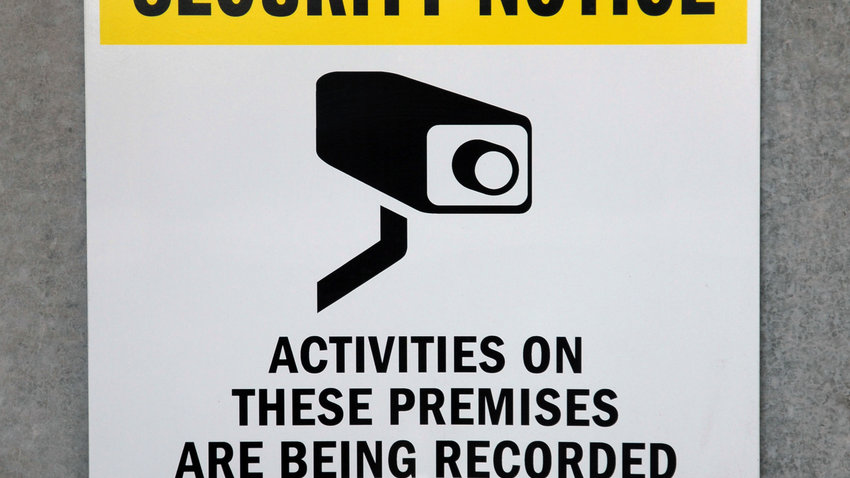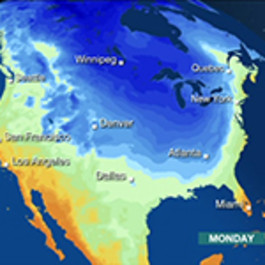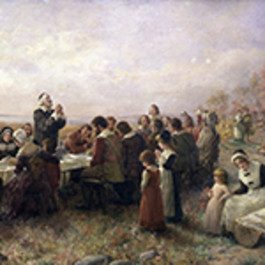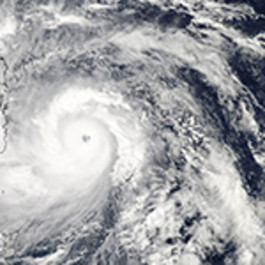5,700 feet underground is enough to stir up anybody’s latent claustrophobia. Although I suppose that if you’re used to being that far down and are doing it for a living (as miners do), it’s pretty much old hat to you. Unless, of course, your way back up to the surface has been blocked, as was the case this week with South African miners in the Harmony Gold mine west of Johannesburg. They were digging over a mile underground when apparently a magnitude-2.4 tremor shook a large rock loose, tumbling it into a metal cable, causing a spark that ignited combustible material into an underground fire, trapping eight men in that subterranean dark. Several years ago in almost the same place in South Africa I descended 742 feet into a gold mine in a small elevator with other tourists (the certificate of proof is still on my study wall)—and trust me, I was more concerned about getting back up to the surface than enjoying the chilled-air sights of that abandoned mine! I can’t imagine the concerns of these miners this week trapped so much farther down. Although on this Black History Sabbath, it may not be so difficult to imagine a vast swath of this nation and this world’s populace trapped in the deep shaft of poverty. It is pointless to remonstrate that some of those trapped are bound by circumstances that they themselves have created. Shall we therefore consider them unworthy of our concern, unfit for compassionate intervention or at least acts of unselfish charity? Nonsense. The fact is that more and more Americans are being trapped by the economic vice that is squeezing more and more of us from the middle class into the lower class, the poorer class. The college educated represent the fasting growing demographic of those now applying for food stamps in this nation. A record one out of 6 Americans is now on food stamps (http://www.csmonitor.com/USA/DC-Decoder/2014/0204/Does-slicing-8-billion-from-food-stamps-cut-to-bone-or-just-trim-some-flab-video). Shall we conclude that it really is none of our concern here in the rural St Joseph River valley? Let the inner cities find their own escape from entrapment. Let Congress cut $8 billion from the food stamp program or argue over the entitlement programs (as they did this week). What’s it to such fervent “We have this hope” Adventists like you and me? Maybe everything. Commenting on Jesus’ familiar words in His final parable about the sheep and the goats and “the least of these brothers and sisters of Mine” (Matthew 25:40 NIV), Desire of Ages makes this startling observation: “[Jesus] represented [the judgment’s] decision as turning upon one point. When the nations are gathered before Him, there will be but two classes, and their eternal destiny will be determined by what they have done or have neglected to do for Him in the person of the poor and the suffering” (637). Black and white, red or yellow, it doesn’t matter—the unfailing standard in the final judgment will be what we have don e or neglected to do for Jesus “in the person of the poor and the suffering.” Period. Which means that all of us gathered today in worship are under the obligation of Christ’s compassion toward us to in turn live out that compassion toward those we clearly know are trapped beneath the surface of this life and can only be set free if we will volunteer, if we will give, if we will reject racial stereotypes for the sake of living out Jesus’ radical love. Right now. Right here. Amen.
Pastors' Blog
By Pioneer Pastors

You knew it would come to this, didn’t you? You pick up the phone and the cheerful voice on the other end introduces herself as Samantha West. Bright and engaging, she proceeds before you realize it is a soft-sell pitch for insurance. But as she continues, something doesn’t seem quite right. Perhaps it’s the phone connection. Maybe it’s her voice, you wonder. Finally you blurt out, “Are you are a real voice or are you digital?” Her charming laugh in response is winsome. But then when you try to engage her in small talk, she balks. Still curious you ask, “What’s the main ingredient in tomato soup?” She replies she doesn’t understand the question. Turns out “Samantha West” is “a robot who denies she is a robot,” who “functions much like a remote-controlled car, operated by a real person working at a call center outside the U.S.” (TIME 12/30/13, p. 14). Why “Samantha?” So the thick foreign accents of the overseas callers won’t give themselves away. Instead, these “human puppeteers choose from a series of recorded responses, using West’s voice to hide their accents.” As TIME magazine observes, “she” may very well become the future of telemarketing. Maybe they borrowed a page from Heaven‘s playbook. After all, isn’t it God’s strategy to use your voice—and not just your voice, but your life, your mannerisms, your very presence—as a representation of the Lord Jesus Himself? So that when people hear you, they are strangely drawn to Him. Jesus pointed out, “‘It is enough for students to be like their teachers, and servants like their masters’” (Matthew 10:25 NIV). Because when you are like Him—when you “have the same mindset as Christ Jesus” (Philippians 2:5)—you become a winsome and contagious “sell” for the Master, don’t you? Which is what Steps to Christ is saying: “The humblest and poorest of the disciples of Jesus can be a blessing to others. They may not realize that they are doing any special good, but by their unconscious influence they may start waves of blessing that will widen and deepen, and the blessed results they may never know until the day of final reward.” “When the love of Christ is enshrined in the heart, like sweet fragrance it cannot be hidden. Its holy influence will be felt by all with whom we come in contact” (83, 77). So no matter how insignificant you may think yourself to be, when Jesus’ love radiates from your life, you become Heaven’s agent for drawing the people in your world to Christ. Want to know how to be filled up with that love every new day? Click on the “A New Way to Pray” banner at this website (www.pmchurch.tv) and discover how to put the radical law—“what you behold you become”—into action in your life. After all, you are no “Samantha West”—you are the friend of God Himself. No wonder He has such confidence in you!

Who could be comfortable connecting the National Security Agency (NSA) with God in the same sentence? But read on. The New York Times this week broke a new story with further astounding details concerning the NSA’s global surveillance program. Turns out the agency “has implanted software in nearly 100,000 computers around the world that allows the United States to conduct surveillance on those machines and can also create a digital highway for launching cyberattacks” (http://www.nytimes.com/2014/01/15/us/nsa-effort-pries-open-computers-not-connected-to-internet.html?_r=0). According to the report, through on-site agents the NSA has been able to secretly insert tiny circuit boards or USB cards that transmit radio waves. Through those radio waves NSA monitors are not only able to “spy” on the content of those computers, but can also utilize those same waves to launch a crippling attack on the computer system(s) of that nation. The Times observes: “The N.S.A. calls its efforts more an act of ‘active defense’ against foreign cyberattacks than a tool to go on the offensive. But when Chinese attackers place similar software on the computer systems of American companies or government agencies, American officials have protested, often at the presidential level.” And so the revelations of the shadowy world of our government’s surveillance programs continue to unfold. Candidly, who of us would be surprised to discover that a video record of all our waking and sleeping is being kept in some hideaway subterranean fortress! And God? OK, let’s be honest—the Bible is clear that a 24/7 record is being kept somewhere of every inhabitant of this earth. Jesus Himself taught: “‘But I tell you that everyone will have to give account on the day of judgment for every careless word they have spoken’” (Matthew 12:36). Somebody’s keeping a rather exhaustive record, wouldn’t you say? “For God will bring every deed into judgment, including every hidden thing, whether it is good or evil” (Ecclesiastes 12:14). (Which, incidentally, means that the NSA’s covert activities are themselves being recorded on Somebody’s Supercomputer—call it poetic justice!) But what shall we call God? How about our “dearest friend”(Mss 80, 1903). But what kind of a Friend would order 24/7 surveillance? Switch the focus for a moment. What if we had (and we do, you can be sure) an enemy who rants and rails against us 24/7—our phony hypocritical lives, our ad nauseum repeat failures and sins, our utter unChristlikeness? How could you ever silence such an adversary without a 24/7 record? “What do you mean they are fakes and failures? Look at their records! Note how often they have cried out to Me to save them, to forgive them, to empower and strengthen them for living above your deceptive attacks? Look at the record, and let it be shown that in answer to their prayers I have covered them with the spotless robe of My own perfect life!” Trust me—having a 24/7 record when the evil prosecutor is throwing the book at you isn’t bad news—it is very good news! So let the NSA spy on and on. The very dearest Friend you and I have sits on the throne of the universe. And there will be justice meted out one day. But in the meantime, let Mercy’s record show that we have chosen as our Defender (1 John 2:1), our Judge (John 5:22) and our Friend (John 15:14) the Jesus Savior of Calvary. Which makes His 24/7 surveillance the best news of all.

You knew it was cold when the Lincoln Park Zoo in Chicago kept its polar bear inside! And when every state in the union dipped below 32 degrees on Tuesday (including Hawaii). Suddenly Americans have added two meteorological words to their vocabulary, “polar vortex.” Like a spinning top atop our planet is a band of high altitude winds that circle the Artic. As I heard one meteorologist describe it, when that spinning top slows down and begins to wobble (like any good top can do), that’s when the frigid polar winds dip southward away from the North Pole and when the polar vortex becomes a part of our Northern Hemisphere vocabulary and experience. And what an experience here in little Berrien Springs. Tuesday morning our thermometer at home read the lowest I’ve ever seen it, 13 below. And that was without wind chill. Not even a polar bear deserves to be out in that frigid air. Which is why Andrews University and all the schools in town, in fact in the region, shut down for two frozen days. And while nobody around a campus usually complains about an extra snow day or two, the impact of severe weather is hard to measure. With 7000 flights canceled on Monday and Tuesday across the nation, with the construction industry put on icy hold for a few days, but with the offsetting sale of winter clothing and supplies, economists consider extreme winter weather basically a draw in terms of long term financial impact. But wouldn’t it be great if, even as we humans tend to huddle closer to one another on snow-blown nights, even so there were a concomitant relationship between frigid weather and a drawing closer to God? When you consider the emotional chill that plagues so much of society today—the insular, almost polar freeze that keeps us apart—think of the social (not to mention spiritual) impact our drawing closer and closer to God would have on the people around us. “Come near to God, and he will come near to you” (James 4:8). Not because He doesn’t want to be the first to move. Calvary is crimson proof enough that God always makes the first move! But as a gracious and considerate Friend, God waits to know if you really do want to draw nearer to Him, if you really do want Him to draw near to you. Give the nod, say Yes, raise your hand, lift up your heart—and in that instant “he will come near to you.” In the cover of my prayer journal a few days ago, I scribbled this line: “My prayer and mission—the older I get, the closer I grow.” Want to join me in that New Year quest? Our new mini-series will probe how to do just that—how to be more like Jesus. I hope you’ll share the journey right here at this website (www.pmchurch.tv) or right here in worship at Pioneer each Sabbath. “Come near to Me, and I will come near to you.” That’s enough to warm any soul, isn’t it?
Scientists think they’ve found the secret to our good and bad habits. It has to do with the pleasure-sensing chemical dopamine, coursing up and down our body’s internal highways. Dopamine “conditions the brain to want that reward again and again—reinforcing the connection each time—especially when it gets the right cue from your environment” (South Bend Tribune 1-4-11). For example, you enjoy munching on chips (no doubt a healthful kind). You usually do it before supper, while you’re watching the evening news. (I know the routine well!) Dopamine links your desire for those chips to the environmental stimulus of watching the evening news, and pretty soon your brain’s dopamine-rich striatum region links both activities to a desired reward—pleasurable taste and relaxation. Turn on the news, get hungry for chips—munch some chips, turn on the television. The more repetitions, the stronger the dopamine tie that binds. “‘Why are bad habits stronger? You’re fighting against the power of an immediate reward,’ says Dr. Nora Volkow, director of the National Institute on Drug Abuse and an authority on the brain’s pleasure pathway. It’s the fudge vs. broccoli choice: Chocolate’s yum factor tends to beat out the knowledge that sticking with veggies brings an eventual reward of lost pounds. ‘We all as creatures are hard-wired that way, to give greater value to an immediate reward as opposed to something that’s delayed,’ Volkow says” (ibid). And the problem is that we tend to overestimate our ability to resist temptations around us, “thus undermining attempts to shed bad habits, says experimental psychologist Loran Nordgren, an assistant professor at Northwestern University’s Kellogg School of Management. ‘People have this self-control hubris, this belief they can handle more than they can,’ says Nordgren, who studies the tug-of-war between willpower and temptation” (ibid). All of which means that establishing good habits and ridding bad habits requires more than simply composing another list of New Year’s resolutions. “Been there—done that.” Based on this AP report of their studies, here are five new routines researchers recommend adding to your good-habits strategy: “Repeat, repeat, repeat the new behavior—the same routine at the same time of day.” Pick a time of day, select an activity, and stick to it. Personal prayer and Bible study first thing the morning. Walking, jogging, working out at the same time each day. The striatum will eventually recognize the new habit and will “reward” you for faithfulness to the new routine, or “disturb” you when you neglect it. “Exercise itself raises dopamine levels,” which means adding this good habit to your routine will raise your feel-good sense of vitality. “Reward yourself with something you really desire.” A new book or a CD or an outfit you’ve been needing reinforces your own intentions to stick to good habit routine. “Stress can reactivate the bad-habit circuitry.” So “chilling out” isn’t such a bad idea when your circuits are on overload. “Cut out the rituals linked to your bad habits.” As the report puts it, “No eating in front of the TV, ever.” But there’s one more strategy science can never measure. It’s your faith-factor. Repeat this dynamite promise from God daily and your striatum will quickly get the message: “I can do all things through Christ who strengthens me” (Philippians 4:13). Too simple? Hardly! Begin each day in quiet conversation with Him through a story-a-day reading through the Gospels, and you will unite yourself with Christ himself, as you discover for yourself his omnipotent friendship—a power even stronger than dopamine.

(Spoiler alert: I’m against it.) It was practically a feeding frenzy this week, as Americans lined up across the nation to purchase their $2 Mega Millions lottery tickets before the Tuesday night drawing. One news report from the Nevada-California state line indicated that Nevadans were streaming across the border to purchase the lottery tickets in California (a Mega Millions participating state), with a waiting line so long that it stretched from the California store back across the border into Nevada. California sales accelerated to 25,000 tickets per minute! Never mind that the chance of picking the winning numbers was calculated at 1 in 259 million. With the last minute rush, the jackpot was driven up to the second highest in U.S. lottery history—a cool $636 million (which could top $645 million when the final tally is made). And when America awakened on Wednesday morning the headlines announced there are two winners—two still anonymous ticket holders who will spit their $636 million jackpot and enjoy what a whole lot of Americans will consider a very merry Christmas. Actually, I’m glad there was a winner—because had there not been, some estimated the jackpot would have grown to $1 billion by the next Tuesday evening drawing, which would have been Christmas Eve. And the irony of a billion dollar gambling giveaway on the eve of the day when some of the world would be remembering the birth of Jesus would have been acutely embarrassing! I suppose had He been born in Caesar’s palace in Rome, a billion dollar giveaway might make a semblance of sense. But for the God of the universe, whose wealth could be calculated as Croesus plus infinity, to walk away from it all, choosing rather to be born into abject poverty in a backyard cave for the solitary mission of saving this race of lost children—somehow the giddy hoopla over Mega Millions pales into absurdity. And so as you celebrate this Christmas, perhaps gathering with family and friends or perhaps reflecting all alone, I hope your heart and mine will turn from the holiday tinsel and bling to a midnight sky overhead. And there in the darkness let us bow down with quiet joy and fervent gratitude before this same Jesus, who “though he was rich, yet for your sake he became poor, so that you through his poverty might become rich” (2 Corinthians 8:9)—not just a meager jackpot, but rather the emptying of “the whole treasury of heaven” for us (Desire of Ages 57). “O come, let us adore Him!” Amen.
Twin holiday tragedies this past weekend have preoccupied both the news media and the nation. We’ve all seen the pictures. The Metro-North Railroad train, its locomotive and seven cars upended, splayed and flung beyond the tracks and nearly into the Harlem River. Four dead, 60 injured. Just as tragic was the fiery crash of actor Paul Walker, star of the “Fast and Furious” movie franchise. A security camera captured the Porsche Carrera GT’s explosion after slamming into a tree and concrete pole, killing both the actor and his friend and driver Roger Rodas. Investigations are ongoing, but preliminary evidence suggests that excessive speed was the cause of both accidents. The Metro-North train was traveling 82 mph in a 30 mph zone around that sharp bend in the Bronx. Whether either accident was the result of human error or mechanical trouble is yet to be determined. Definition of speeding—the accelerating velocity of an object. Even a society, a culture, a civilization can speed with acceleration toward an unintended end, can’t it? The speed with which poverty is overtaking the human race is breath-taking. The speed that natural disasters now spread carnage across communities and countries is stunning. (BTW, Paul Walker, a practicing Mormon, formed the Reach Out Worldwide relief organization with his friend Roger Rodas to provide aid to global catastrophes—they were returning from a fund-raising event for the Philippines typhoon recovery when both were killed on Sunday.) Speed. Given the velocity of national and global change—economic and social, technological and ecological—not to mention personal change, consider these two admonitions. First, slow down. Real life is both fast and furious. Which means it takes will power to intentionally slow down your pace. Slow it down at times even to a crawl—locking the door to your room or your office—and crawling into the corner of your chair, your bed, your private space and closing your eyes, catching a nap, or simply savoring the quiet. Fifteen to 20 minutes—that’s all it takes, as research shows, to revive your spirit, energize your mind and boost your productivity. During this frenetic but joyful holiday season, slowing down can be a life-saving strategy. Second, stay alert. Reports indicate that the train engineer may have fallen asleep at the controls early Sunday morning. Spiritually speaking, falling asleep at the wheel is a disaster. “Keep a cool head. Stay alert. The Devil is poised to pounce, and would like nothing better than to catch you napping” (1 Peter 5:8 Message). Naps work in the physical realm, but in the spiritual realm, Peter is clear—you snooze, you lose. The stakes are exponentially higher. So stay alert. Especially in this season of good food, great friends and lots of fun—it’s easy to drop your guard and lose your spiritual edge. That’s why I recommend for the holidays adding some time to your daily conversation with Christ. Another fifteen minutes beyond your usual—just you and Jesus alone in the Gospels—one story a day to relive with Him (click onto the “New Way to Prayer” banner here at this website). So go ahead—slow your pace, catch your breath, calm your heart. “Come to me. Get away with me and you’ll recover your life. I’ll show you how to take a real rest” (Matthew 11:28 Message). What better Gift this Christmas than Him?

Nathaniel Philbrick, in Mayflower, his acclaimed history of the Pilgrims, recounts how William Bradford, the intrepid leader of that courageous band of Puritans, years later described “that first morning in America.” Recalling with wonder their landing on the salty, windswept shores of Cape Cod Bay on November 15, 1620, Bradford wrote: “But here I cannot stay and make a pause and stand half amazed at this poor people’s present condition. . . . They had now no friends to welcome them nor inns to entertain or refresh their weather-beaten bodies; no houses or much less towns to repair to, to seek for succor. What could sustain them but the spirit of God and His Grace? May not and ought not the children of these fathers rightly say: ‘Our fathers were Englishmen which came over this great ocean, and were ready to perish in this wilderness; but they cried unto the Lord, and He heard their voice and looked on their adversity’” (46). His words are appropriate, not only because we celebrate the nearly four-century tradition of the Pilgrims’ thanksgiving this week. But in Bradford’s description—“they cried unto the Lord, and He heard their voice and looked on their adversity”—perhaps we also hear the faint hint of a day of adversity yet coming upon this land of the Pilgrims. Who wants to be a naysayer on such a blessed and bountiful holiday weekend like this? But the gyrating marketplace, the mad scramble of consumerism, the insufferable political debate over this proud nation’s responsibility to the weakest and poorest (and sickest) among us, the yawning chasm between the haves and the have-nots in America—one perhaps could be excused, even on a holiday weekend, for wondering if this Land of the free has already seen her best days. Scribbled on the page of Revelation 13 in my Bible are these words written a century ago: “The Lord has done more for the United States than for any other country upon which the sun shines” (Ms 17, 1906). Hardly a prideful claim of superiority or grounds for national arrogance, this quiet observation simply declares a common truth that this country has enjoyed the uncommon blessings of Providence. And in the sunlight, how easy is the spirit of thanksgiving. But should the days turn dark and the supernal blessings wither away, what shall we be grateful for then? A year after their landing, the Pilgrims gathered for that first thanksgiving—half of their band already buried beneath the Massachusetts sod. Yet they gave thanks to God. And so must we—no matter the uncertain voyage that spreads before us, nationally or personally. The Almighty is still that. And in the darkest storm His mercy will yet triumph. Just look at Calvary. “Oh, give thanks to the LORD, for He is good! For His mercy endures forever” (Psalm 136:1 NKJV).

Can you believe it? Earth may boast (according to wiki.answers.com) 23,259,475,120 dialects, but researchers have discovered in a new study that when it comes to confusion, we all speak the same language! No kidding. It turns out that our English word, “Huh?”, is about as universal as it gets. The so-called “Huh-hunters” (linguistic anthropologists) headed to remote villages on five continents and examined ten very different languages. After weeks of trust-building and observation, these scientists discovered the startlingly similar sounding “Huh?” in all the languages and dialects. In English when we interject the word “Huh?” into our conversations we are inserting a word that “plays a crucial role in conversations, according to Herbert Clark, a Stanford University psychologist who studies languages. When one person misses a bit of information and the line of communication breaks, there needs to be a quick and effective way to fix it, he said” (South Bend Tribune 11-11-13). And so we interrupt with a “Huh?” to ask for clarification or to offer our incredulity, our disbelief. Guess what—we’re not alone. These researchers found a tonally equivalent and remarkably similar word in all ten languages. “All the words had a single syllable, and they were typically limited to a low-front vowel, something akin to ‘ah’ or ‘eh.’” And “every version of ‘Huh?’ was clearly a word because it passed two key tests . . . : Each ‘Huh?’ had to be learned by speakers and [had to] follow the rules of its language” (ibid.). For example, when we English speakers ask a question, our voices rise at the end of a sentence—and that’s exactly how we speak the word “Huh?” But when Icelanders ask a question, their voices drop at the end—which is precisely how they treat “Ha?” (their equivalent of “Huh?). Confused yet? As Amina Khan put it in the Los Angeles Times, “Humans speak many languages but we may be united in our confusion” (ibid.). Indeed! So does Heaven have a “Huh?” Does God ever listen to you or me praying and find Himself having to interject a “Huh?” into our monologue? In this season of thanksgiving and gratitude, I suppose it could be a head-scratcher to be the Creator and Sustainer of the universe—who provides for our deepest needs 24/7—but who listens in on prayers that are utterly unmindful of all His blessings and are totally preoccupied with all my wants. “Huh?” “The soul may ascend nearer heaven on the wings of praise.” “We should keep in our thoughts every blessing we receive from God, and when we realize His great love, we should be willing to trust everything to the hand that was nailed to the cross for us” (Steps to Christ 104). This Thanksgiving why not take that hand in gratitude and turn our “Huh?” into “Amen.”

The scenes have been all too familiar—and tragically so. The photographs could have come out of the monster earthquake tsunami that leveled swaths of the east coast of Japan in 2011. Or the pictures could have been taken in the aftermath of Hurricane Sandy that obliterated entire communities on our own eastern seaboard in 2012. But now for the third year in a row another eastern coastline has been reduced to broken match sticks in the furious wake of Typhoon Haiyan. And the death toll is agonizingly too high once again. Just another random act of Mother Nature out of control? Perhaps. One more nail in the coffin of global warming? I’ll let the scientists argue their points. But I can’t shake the nagging suspicion that, contributory factors aside, we are witnesses to a ratcheting up of (un)natural calamities whose message to the human race is more than simply a scientific one. Millennia ago an ancient prophet observed: “The LORD is slow to anger but great in power; the LORD will not leave the guilty unpunished. His way is in the whirlwind and the storm, and clouds are the dust of his feet” (Nahum 1:6). Nobody, least of all this prophet, is suggesting that all natural calamities are divinely targeted earth events to punish the guilty. By the tens of thousands, it is the innocent who suffer. Nevertheless, we mustn’t miss the prophet’s point—haphazard and seemingly random meteorological events may be divinely permitted portents to warn the human race of impending judgment. Imagine for a moment an asteroid similar in megatonage to the one that exploded near Chelyabinsk this past February. Only this time what if such an asteroid, undetected and unexpected, would strike a populated center somewhere on this planet? The reaction of this civilization would border on the edge of panic and “revival.” “An act of divine judgment” would be the message trumpeted from a thousand pulpits, mosques, synagogues and temples. The point? Catastrophic (un)natural events instantly, universally suggest divine judgment. That was the prophet’s point. It was Jesus’ point, too: “‘There will be signs in the sun, moon and stars. On the earth, nations will be in anguish and perplexity at the roaring and tossing of the sea. People will faint from terror, apprehensive of what is coming on the world, for the heavenly bodies will be shaken’” (Luke 21:25-26). Roaring and tossing of the sea? Heavenly bodies shaken? Portents of random obliteration or signs of impending divine judgment—either way Someone will have the rapt attention of the entire human race. My point is twofold. First, we must not become calloused to these crescendoing natural disasters. Text the American Red Cross for a donation on your phone bill for the Philippine crisis. Go online to ADRA.org and contribute to their Leyte disaster relief. Don’t allow your emotions to be aroused without acting in response. Our GROW Group made a contribution to AFIA, the Filipino American club on campus. Second, wake your heart up! We no longer live in natural cycles on this planet. “More and more, as the days go by, it is becoming apparent that God’s judgments are in the world. In fire and flood and earthquake He is warning the inhabitants of this earth of His near approach” (9T 97). Go deeper in your walk with Jesus—linger longer in His presence each morning. Ask for a new boldness to share the urgently good news about Him and His soon return. Step outside your comfort zone—share your faith with a stranger or a friend. After all, if Heaven is ready to go, shouldn’t we be, too?
- ‹ previous
- 34 of 62
- next ›